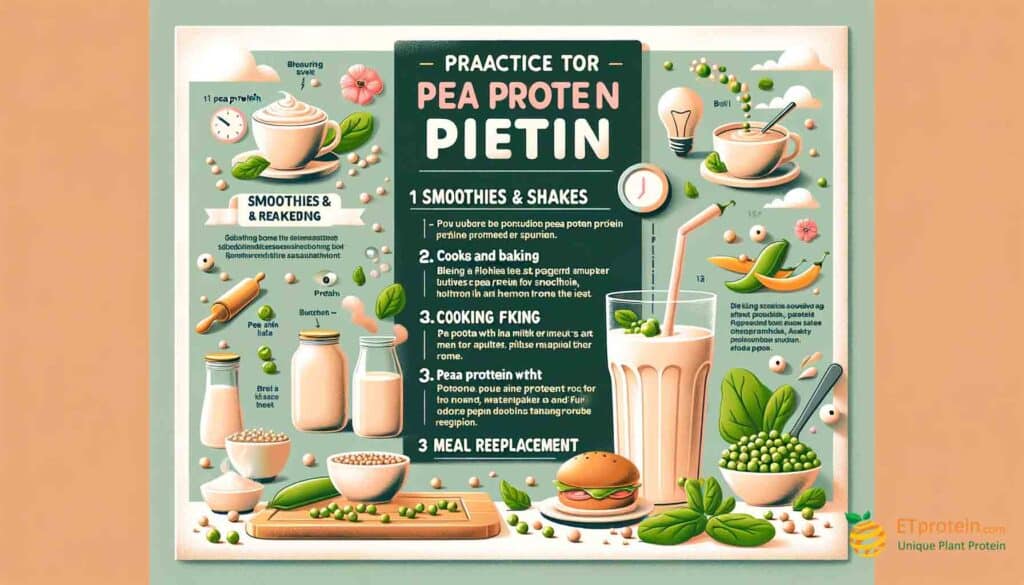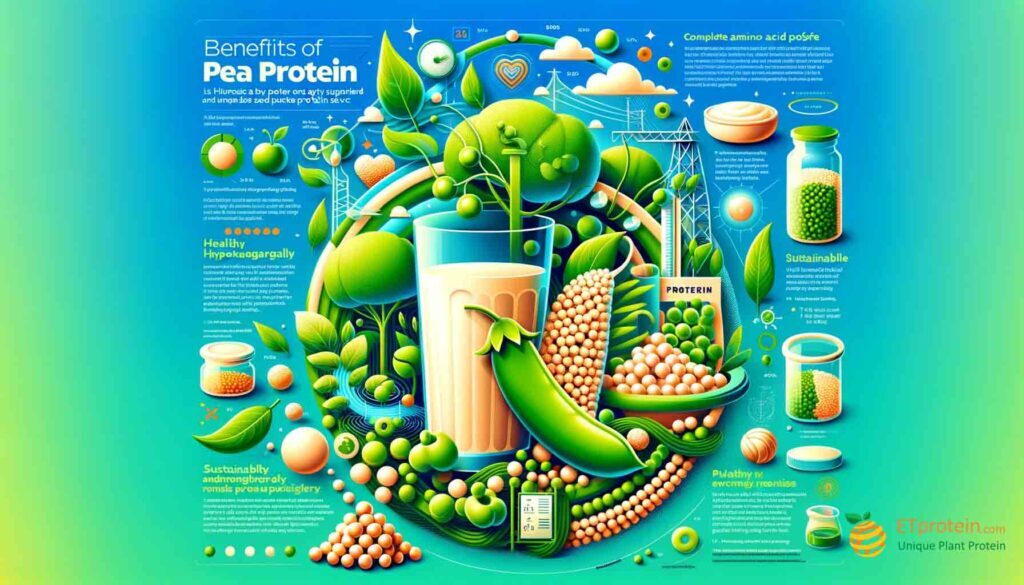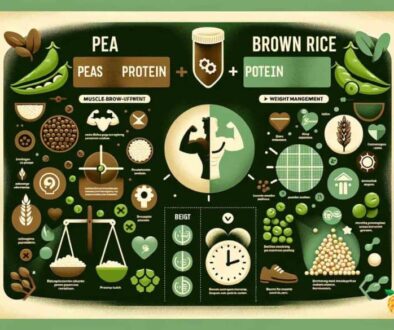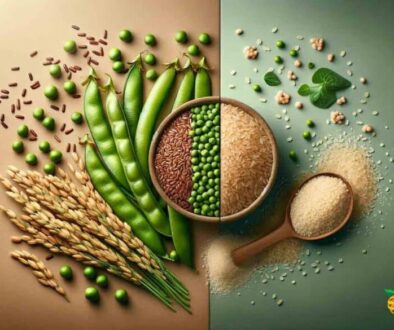Is Pea Protein Soy? Unraveling the Myths and Facts
Uncover the truth about pea vs. soy protein and why ETprotein’s high-quality, sustainable pea protein is the superior choice.
Introduction
In recent years, the surge in plant-based diets has spotlighted various protein sources, notably pea protein and soy protein. A common question that emerges in health-conscious circles is: “Is pea protein soy?” This article aims to dispel myths, provide scientific insights, and guide consumers in making informed choices about their protein sources.
Understanding Pea Protein
Pea protein is derived from yellow peas, also known as split peas. It’s a high-quality protein that contains all nine essential amino acids, making it a complete protein. Unlike soy, pea protein is naturally hypoallergenic and is an ideal choice for individuals with soy allergies or sensitivities.
The Nutritional Profile of Pea Protein
- Complete Amino Acid Profile: Like soy protein, pea protein offers a complete amino acid profile, crucial for muscle growth, repair, and overall health.
- Hypoallergenic: Pea protein is free from common allergens found in soy, making it suitable for a broader range of individuals.
- Digestibility: It’s easily digestible and gentle on the stomach, unlike some soy products which can cause digestive discomfort in sensitive individuals.
Soy Protein: A Brief Overview
Soy protein, extracted from soybeans, is another popular plant-based protein. It’s praised for its high protein content and has been a staple in many diets for centuries. However, it’s important to note that soy contains allergens and phytoestrogens, which can be a concern for some individuals.
Comparing Pea Protein and Soy Protein
- Allergenic Potential: Soy is a common allergen, which can limit its suitability for some consumers. Pea protein, in contrast, is less likely to cause allergic reactions.
- Phytoestrogens Content: Soy contains phytoestrogens, which can mimic estrogen in the body. While generally safe, this can be a concern for certain individuals. Pea protein does not contain these compounds.
- Environmental Impact: Pea protein is often touted for its lower environmental footprint compared to soy protein, which sometimes involves deforestation and high water usage.
Debunking Myths
- Myth: Pea protein is a type of soy. Fact: Pea protein is derived from peas, not soybeans, and is completely soy-free.
- Myth: Pea protein lacks essential amino acids. Fact: Pea protein is a complete protein source, much like soy protein.
Practical Tips for Incorporating Pea Protein
- Smoothies and Shakes: Easily blend pea protein into your favorite smoothies.
- Cooking and Baking: Substitute a portion of flour with pea protein in recipes.
- Meal Replacement: Use pea protein as a satiating, nutrient-rich meal replacement.

Why Choose ETprotein Company’s Pea Protein?
As we navigate the nuances between pea protein and soy, it becomes clear that pea protein offers distinct advantages, especially for those with dietary restrictions or environmental concerns. In this context, ETprotein Company’s pea protein emerges as an excellent choice.
- Quality and Purity: ETprotein emphasizes the highest quality and purity in their pea protein, ensuring a premium product.
- Sustainability: Committed to eco-friendly practices, ETprotein’s sourcing and manufacturing processes are designed to minimize environmental impact.
- Versatility and Taste: Their pea protein is not only nutritious but also versatile and delicious, making it easy to incorporate into any diet.
Conclusion
Understanding the differences between pea protein and soy protein empowers consumers to make informed decisions based on their health needs, dietary preferences, and environmental considerations. While both proteins have their merits, pea protein’s hypoallergenic nature, complete amino acid profile, and lower environmental impact make it a standout choice. ETprotein Company’s pea protein, with its focus on quality, sustainability, and taste, is an exemplary product for anyone looking to integrate pea protein into their diet.
References and Further Reading
For those interested in exploring this topic further, a variety of scientific journals and nutritional guides offer in-depth analyses of pea and soy proteins. Additionally, ETprotein Company’s website provides comprehensive information on their pea protein products, along with recipes and usage tips.
About ETprotein:
ETprotein, a reputable pea protein Chinese manufacturer and supplier, is renowned for producing, stocking, exporting, and delivering the highest quality organic bulk vegan protein and plant proteins. Our offerings, characterized by a neutral taste, non-GMO, allergen-free attributes, cater to a diverse range of industries. We serve nutraceutical, pharmaceutical, cosmeceutical, veterinary, as well as food and beverage finished product distributors, traders, and manufacturers across Europe, USA, Canada, Australia, Thailand, Japan, Korea, Brazil, and Chile, among others.
Our specialization includes exporting and delivering tailor-made protein powder and finished nutritional supplements. Our extensive product range covers sectors like Food and Beverage, Sports Nutrition, Weight Management, Dietary Supplements, Health and Wellness Products, and Infant Formula, ensuring comprehensive solutions to meet all your protein needs.
As a trusted company by leading global food and beverage brands and Fortune 500 companies, ETprotein reinforces China’s reputation in the global arena. For more information or to sample our products, please contact us and email sales(at)ETprotein.com today.














